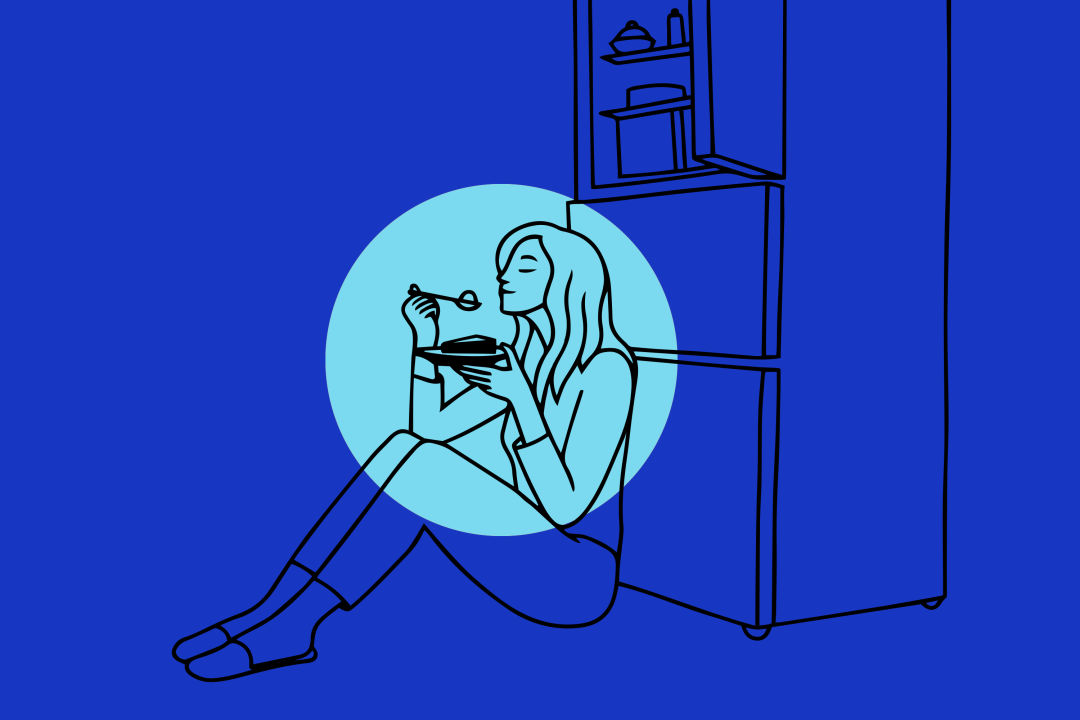Is Eating at Night Bad for Your Body?

Image: Gigi Ortwein
If you find yourself hungry before going to bed at night, you're not alone. Night eating is a common experience for most people, whether they're eating emotionally, due to boredom or out of true hunger. But is eating at night really as bad as the diet and wellness industry says? Does your body know whether it’s eating at 5 p.m. or 8 p.m.? Nutritionist and registered dietician Mikka Knapp, from Bright Body Nutrition in Sarasota, says no.
“I think there’s this concept that once the clock strikes 8 p.m., your body will store your food as fat, but that is not true,” says Knapp. “It all depends on the person and their lifestyle.”
Eating after a certain hour of the day won’t make you fat. Fat loss depends on your total caloric intake for the day and whether you are overeating when eating at night. Knapp does say that generally, people should eat about three hours prior to going to bed, as eating too close to lying down can be bad for digestion and cause poor sleep.
“When you have poor sleep, you also crave sugar to keep you awake the next day,” says Knapp. “Not to mention you could experience heartburn, indigestion and feeling bloated when you wake up.”
There are some exceptions to this rule, however. If you live a busy lifestyle and cannot eat dinner until, say, 9 p.m., eating something light is important.
“One of the main problems I see with clients is they are so busy during the day, they don’t take time to eat,” says Knapp. “People are consuming all of their calories at night, which becomes a problem.” She suggests spacing out meals throughout the day and checking in on hunger.
But if that's not possible, “make it a habit to eat dinner or a small meal whenever you can, as long as you are giving yourself time to digest prior to sleep,” says Knapp. “Say you are eating at 7 p.m. Try not to lie down until 10.” She adds that eating a little something is better than going to bed hungry, which can also disturb sleep and weight loss efforts.
What kinds of foods are good to eat at night? Knapp suggests things like fruit, fiber-rich food, and easily digestible protein like Greek yogurt. Foods like apples and peanut butter, cooked vegetables and lean meats are good options, too—but avoid eating too much meat, as it can be difficult to digest. She adds that magnesium-rich food, like greens, nuts and seeds, can also aid sleep.
Avoid alcohol when trying to get to bed. Many people think a glass of wine or two will help them sleep, but it could actually disrupt slumber. And “try not to eat processed sweets, because they can spike your blood sugar and keep you awake,” says Knapp.
Another reason people eat at night is for emotional reasons. When we are stressed, bored or anxious, we may turn to comfort food when the sun goes down. To avoid emotional eating, “finding ways to keep your mind busy is really helpful,” says Knapp. “Try to focus on other activities before bed that will distract you.”
Can your body even digest food at night? “Digestion is a very energetic body process, so food may not fully digest when you are asleep,” says Knapp. This can lead to your metabolism slowing down and feeling sluggish the nest day. To help settle the stomach and aid digestion before bed, try drinking a warm tea, like ginger or peppermint, or water infused with fruit like pineapple, mint or cucumber for the electrolytes.
“There is incredible research that shows taking a break from eating allows the body to focus its energy and resources on repairing tissue and DNA,” says Knapp. “The best time to allow your body to do this is at night, during rest.”
So if you do plan to eat at night, make sure you are fueling yourself properly during the day, and not wanting to eat for other reasons. Eat dinner a few hours before bed, and avoid sweet, salty or fried foods.
“At the end of the day, your body is wise and will tell you what it needs,” Knapp says.



